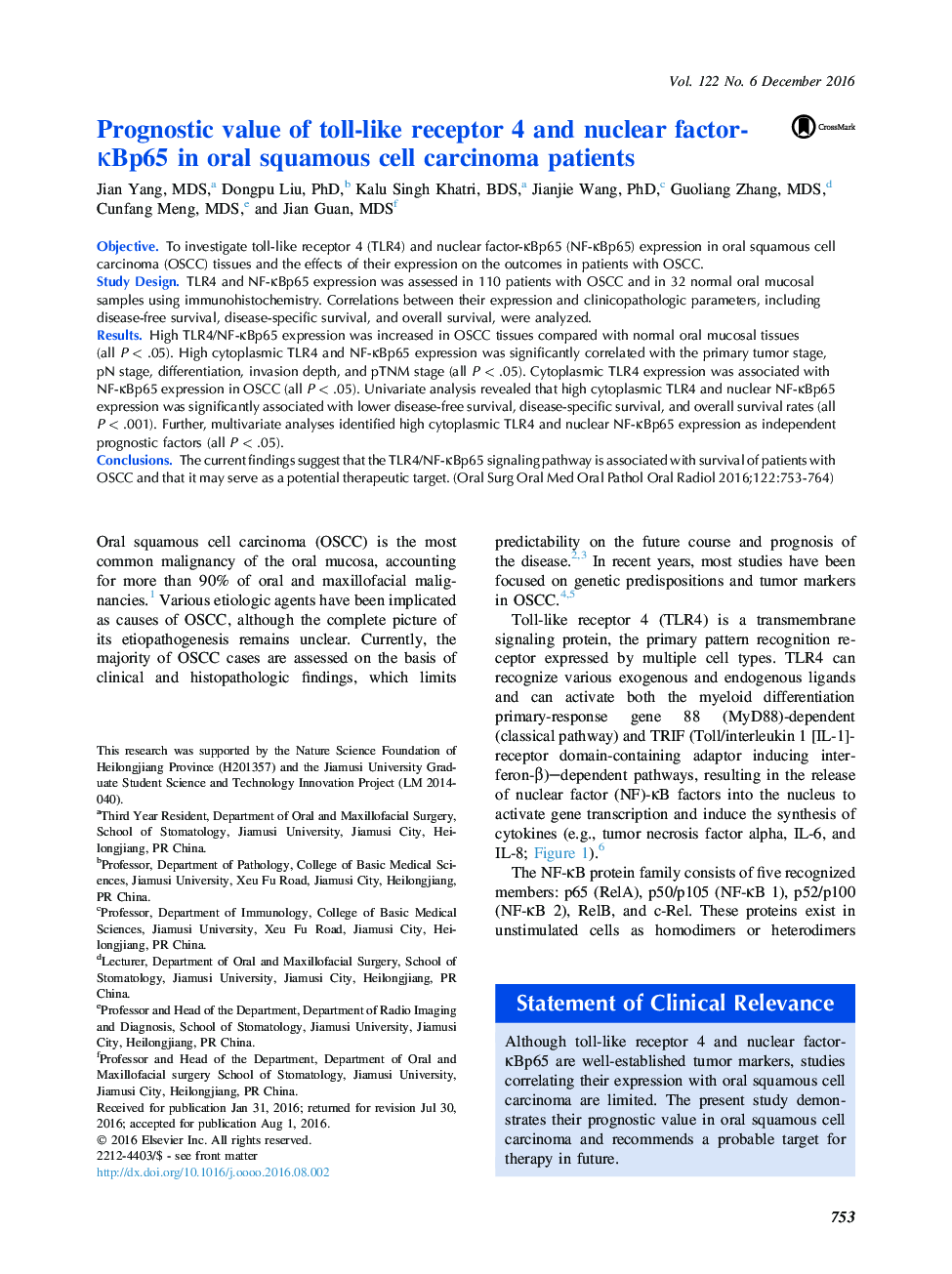| Article ID | Journal | Published Year | Pages | File Type |
|---|---|---|---|---|
| 5643060 | Oral Surgery, Oral Medicine, Oral Pathology and Oral Radiology | 2016 | 13 Pages |
ObjectiveTo investigate toll-like receptor 4 (TLR4) and nuclear factor-κBp65 (NF-κBp65) expression in oral squamous cell carcinoma (OSCC) tissues and the effects of their expression on the outcomes in patients with OSCC.Study DesignTLR4 and NF-κBp65 expression was assessed in 110 patients with OSCC and in 32 normal oral mucosal samples using immunohistochemistry. Correlations between their expression and clinicopathologic parameters, including disease-free survival, disease-specific survival, and overall survival, were analyzed.ResultsHigh TLR4/NF-κBp65 expression was increased in OSCC tissues compared with normal oral mucosal tissues (all P < .05). High cytoplasmic TLR4 and NF-κBp65 expression was significantly correlated with the primary tumor stage, pN stage, differentiation, invasion depth, and pTNM stage (all P < .05). Cytoplasmic TLR4 expression was associated with NF-κBp65 expression in OSCC (all P < .05). Univariate analysis revealed that high cytoplasmic TLR4 and nuclear NF-κBp65 expression was significantly associated with lower disease-free survival, disease-specific survival, and overall survival rates (all P < .001). Further, multivariate analyses identified high cytoplasmic TLR4 and nuclear NF-κBp65 expression as independent prognostic factors (all P < .05).ConclusionsThe current findings suggest that the TLR4/NF-κBp65 signaling pathway is associated with survival of patients with OSCC and that it may serve as a potential therapeutic target.
